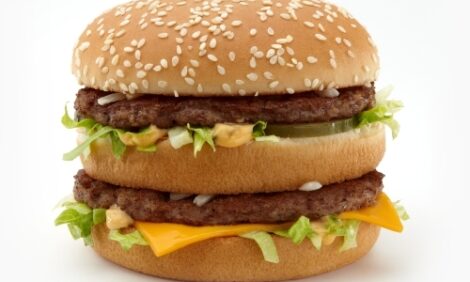



High Levels of Iron in Water May Hurt Dairy Industry
US - – Cows are thirsty and with good reason — they need to drink nearly 30 gallons of water a day to produce milk and stay healthy. That water needs to be high quality because much of the ingested water becomes milk, which is 87 per cent water. But high levels of minerals in water due to shortages can be problematic for cows.Virginia Tech is leading research into how excess amounts of iron and other minerals can impact dairy cow productivity and health, nutrient digestibility, milk synthesis, and the quality of dairy products.
Susan Duncan, a professor in food science and technology, Katherine Knowlton, a professor in dairy science, and Andrea Dietrich, a professor in civil and environmental engineering, are conducting the research. Duncan and Knowlton are in the College of Agriculture and Life Sciences.
“Excess amounts of iron and copper in milk can lead to flavor problems, making the milk taste bad,” said Ms Duncan. “Additionally, changes in the milk’s mineral composition may reduce the quality of manufactured dairy products, such as cheese and yogurt.”
The results of the study will provide preliminary data to establish mineral recommendations for water reuse in dairy herd health. The project will benefit water and dairy managers in the US and around the globe.
A potential for decreased availability of groundwater for dairy farming exists. Western dairy farms are already seeking alternative sources of drinking water to reduce the burden on natural groundwater reservoirs. High levels of minerals may be in some water sources.
How the cow’s health and milk composition are affected by high iron content in drinking water is unknown.
“But we do know that iron from feed sources can affect calcium absorption,” Ms Duncan said. Calcium is stored in cows’ bones, just as it is in humans.
In any species, a mother’s body can respond to dietary changes to protect the infant. Many questions remain about how that relationship is affected.
The research seeks to answer several questions, including: Will the cow’s natural response to excess iron in the water protect the calf by maintaining the normal milk calcium content? If so, will this cause changes in the cow’s metabolic mineral balance at the expense of her bone health? Will iron from the water source change the way the cows synthesize milk proteins so that there are more iron-binding proteins in the milk?
Changes in milk composition can impact the quality of dairy products, which may be noted by a decrease in flavor, odor and texture, and a shortened shelf life of milk and dairy products, Ms Duncan said.
TheCattleSite News Desk


